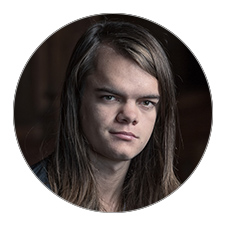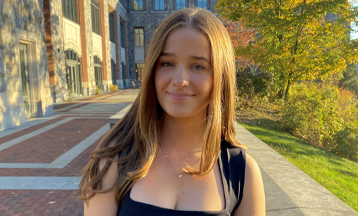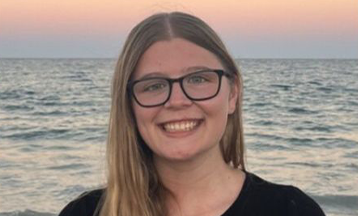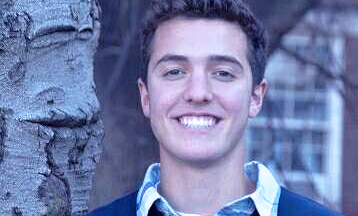-
About
Admitted Student Days
• Saturday, March 28
• Sunday, March 29
• Saturday, April 11Accepted Students: Be sure to register for one of our Admitted Student Days and explore all that Marist has to offer.
About
-
Academics
Admitted Student Days
• Saturday, March 28
• Sunday, March 29
• Saturday, April 11Accepted Students: Be sure to register for one of our Admitted Student Days and explore all that Marist has to offer.
Academics
-
Admission & Financial Aid
Admitted Student Days
• Saturday, March 28
• Sunday, March 29
• Saturday, April 11Accepted Students: Be sure to register for one of our Admitted Student Days and explore all that Marist has to offer.
Admission & Financial Aid
-
Student Life
Admitted Student Days
• Saturday, March 28
• Sunday, March 29
• Saturday, April 11Accepted Students: Be sure to register for one of our Admitted Student Days and explore all that Marist has to offer.
Student Life
- Athletics
Image of Brendon Boldt

Brendon Boldt
Minneapolis-Saint Paul, MNAcademic School
Computer Science and Math, Liberal ArtsCampus
New YorkBrendon Boldt, sporting his below-shoulder-length hair, flip-flops, and relaxed persona, spends hours in Hancock each day, working on independent research and deeply pondering philosophical concepts in the context of computer programming.
Brendon, a junior, has dedicated a great portion of his college education to researching and further justifying his interest in artificial intelligence and philosophy, as he has spent his years at Marist thus far making valuable contributions to his field of interest in an early part of his career. As a computer science and philosophy double major with a math minor, Brendon has committed to an academic lifestyle of problem-solving, in both logical and abstract ways of thinking.
Growing up in Minnesota’s Twin Cities, Brendon utilized his high school experience to experiment with thinking about the way things work, as he served as the captain and lead developer of his school’s robotics team. “My first experience with programming was on the TI-83+ calculators—from there, I found more complex languages and started learning more,” he said.
Brendon explains his research regarding the correlation between his two majors with the concept that computer systems and human brains work in similar ways in terms of basic knowledge capacity and decision-making.“The biggest correlation I have found is the crossover between the philosophy of mind and how we define knowledge and free-will,” he said.
Comparing a variety of philosophical surveys and evaluating an array of theories, Brendon’s research project proved itself as a valid argument in the computer processing world. As he has presented it at conferences, he now plans to create a tangible computer program to further demonstrate his argument.
Following his freshman year, Brendon secured an internship with the software company, Workday, located outside of San Francisco. “I loved the project I had, the environment was great and I really just enjoyed being in the workplace,” he said.
As the San Francisco Bay Area exists as a haven for the technology world, Brendon hopes to return to California to work and further his professional experience there. “I would be disappointed and quite surprised if I didn’t spend at least some portion of my life living there,” he said. “Also, in California, no one will blink twice about my long hair and flip-flops,” he laughed. “I’ve always loved wearing flip flops—I wear them year-round.”
However, working with hands-on software development was slightly counteractive to his extremely strong mindset as a researcher. “Software development felt kind of empty for me in regards to the finished project [being] just some application or some program I built,” he said. “With that, I realized that pretty much any role that just included programming would not really be enough for me.”
After gaining experience and solidifying his goals in the technology field, Brendon attended Siena College during the summer of 2016 doing research on machine learning, an aspect of artificial intelligence and psychology, further delving into research and development techniques.
“That kind of internship experience helped me to realize that I really enjoy research more than I do at a regular kind of desk job,” he said, as this experience solidified his plans to apply to Ph.D. in Computer Science programs for after graduation.
Brendon plans to attend graduate school in order to closely work on research projects in a university setting either in the U.S., the U.K., or in any other part of the world in order to maximize his cultural exposure to his field.
He plans to either work as a college professor in computer science or to work in the research division of a large technology company. “I love explaining things to people and presenting information, even in a classroom setting,” he said.
Brendon’s deep interest in his field of study drives him to combat each day’s work with great enthusiasm in working on his independent study. “The extrinsic motivation is secondary to the fact that I just think that the stuff I’m doing is so cool,” he said. “Exploring those new ideas is what really drives me.”
Brendon spends two to three hours per week practicing the flute, which he began playing at age 10 and has carried into his college life. He also plays the piano and composes his own music using both instruments, and is studying abroad in a music program in Vienna in the spring of 2017. “I don’t mind staying up until midnight to practice flute, because it’s just another way for me to relax and have fun,” he said.
Brendon stands true to his crafted scientific thinking style, as he dismisses an interest in music history or further study and instead expresses his pure interest in the mechanically creative aspects of playing and composing. “I’m never going to stop playing the flute, at least for as long as my fingers allow me to,” he said.
Brendon’s research has led his passion to an exponentially increasing degree and has furthered his goals for his personal contribution to the computer science world.“I would love to contribute something in computer science and philosophy that really helps people to see that computers can function on the same level as humans—making decisions and just kind of existing in the same way,” he said.
By Tara Guaimano



